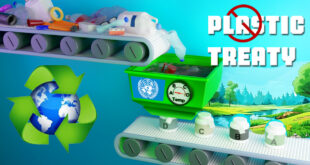- Climate change is a threat to human well-being and planetary health and there is a rapidly closing window of opportunity to secure a liveable and sustainable future for all, the Intergovernmental Panel on Climate Change (IPCC) said in a report on Monday.
- The UN panel does not itself undertake scientific assessments but only evaluates the state of scientific evidence on various aspects of climate change.
- The current report does not weigh in on new scientific evidence but synthesises findings from three working groups. It also integrates evidence from three special reports during the sixth assessment cycle.
- Future reports of the IPCC aren’t expected until 2030 and that’s already marked out as a boundary point year beyond which – if significant action to cut emissions are not taken – it would be impossible to prevent the earth from heating 1.5 degrees Celsius above the pre-industrial levels.
- Overshooting 1.5°C will result in irreversible adverse impacts on certain ecosystems with low resilience, such as polar, mountain, and coastal ecosystems, impacted by ice-sheet, glacier melt, or by accelerating and higher committed sea level rise,” the IPCC said in the report.
- Certain future changes are “unavoidable and/or irreversible” but could be limited by deep, rapid and sustained global greenhouse gas emissions reduction, it added.
- Mainstreaming effective and equitable climate action will not only reduce losses and damages for nature and people, it will also provide wider benefits
- This synthesis report underscores the urgency of taking more ambitious action and shows that, if we act now, we can still secure a liveable sustainable future for all.
Climate justice
- Climate justice is crucial because those who have contributed least to climate change are being disproportionately affected,” Aditi Mukherji, one of the 93 authors of the report, said.
- Environment Minister Bhupender Yadav tweeted that India “welcomed” the report and it “reaffirmed” the principle that historically few developed rich countries were responsible for the crisis. “Role of unsustainable lifestyles and patterns of consumption have been emphasized… current (financial) flows are inadequate and this includes the promised but never received $100 billion,” he said.
SOURCE: THE HINDU, THE ECONOMIC TIMES, PIB
 Chinmaya IAS Academy – Current Affairs Chinmaya IAS Academy – Current Affairs
Chinmaya IAS Academy – Current Affairs Chinmaya IAS Academy – Current Affairs



